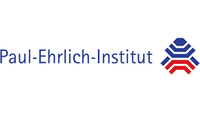CD4+ Cells in the Fast Lane – Effect of CAR-T Cells in Focus

Major attention was paid to the marketing authorisation granted by the European Commission in 2018 for two so-called CAR-T cell gene therapy medicinal products.
These are immune cells (T cells) from cancer patients equipped with a synthetic chimeric antigen receptor (CAR) outside the body using genetic engineering methods, propagated, and then returned into the patients’ body.
The antigen receptor exactly matches the specific surface structures on the cancer cells. With the aid of the CAR, the immune cells recognise the cancer cells and kill them.
Thanks to their extraordinary effectiveness, CAR-T cells enjoy major interest: in certain leukaemia patients, where all therapies had previously failed, the cancer was no longer detectable after the CAR-T cell therapy.
The manufacturing of these medicinal products – removal of the cells from the body, genetic modification outside the body, and reinfusion – however, proved to be very complex.
During the same year, scientists of the research team “Molecular Biotechnology and Gene Therapy” headed by Professor Christian Buchholz, succeeded in generating human CAR-T cells in mice in vivo – in other words, directly in the organism.
The transfer of the genetic information for the formation of the CAR proved to be successful with specifically modified lentiviral vector particles (vectors), which transfer the CAR gene exclusively to particular T cell sub-types responsible for combatting the cancer.
When CAR-T cells are manufactured, both so-called CD4 positive (CD4+) and CD8-positive (CD8+) T cells are normally equipped with the chimeric receptor in the mixture. Up to now, it was assumed that, above all, CD8+ CAR T cells eliminate cancer cells.
Now, funded by the German Cancer Aid and the LOEWE centre Frankfurt Cancer Institute, the research group was able to use their method to question a previous postulate. In their tumour mouse model with the human blood system, they used either exclusively CD4-specific or exclusively CD8-specific lentiviral vectors to create CD19-specific CAR T cells in the organism, which were thus targeted to tumour cells and B lymphocytes.
The researchers (m/w/d) tested the activity of the CAR-T cells by measuring the decrease in tumour cells and in B lymphocyte levels. To their surprise, the CD4+ CAR-T cells showed an unexpectedly strong activity which was at least as pronounced as that of the CD8+ CAR-T cells. It can be assumed that this is because the state of exhaustion is reached less rapidly by CD4+ CAR-T cells, especially in the presence of large amounts of tumour cells, than is the case with CD8+ CAR-T cells.
“”Our research results point to a more direct role of CD4-positive lymphocytes for the elimination of tumour cells in CAR-T cell therapy””, as Professor Buchholz explained the current results. The latest results will possibly provide another module in generating specific and effective CAR-T cells directly in the patient. However, this will require further pre-clinical and, later on, additional clinical studies.
Agarwal S, Hanauer JDS, Frank AM, Riechert V, Thalheimer FB, Buchholz CJ (2020): In vivo generation of CAR T cells selectively in human CD4+ lymphocytes.
Mol Ther May 14 [Epub ahead of print].
https://www.pei.de/EN/newsroom/press-releases/year/2020/10-cd4-cells-in-the-fast…
Media Contact
All latest news from the category: Life Sciences and Chemistry
Articles and reports from the Life Sciences and chemistry area deal with applied and basic research into modern biology, chemistry and human medicine.
Valuable information can be found on a range of life sciences fields including bacteriology, biochemistry, bionics, bioinformatics, biophysics, biotechnology, genetics, geobotany, human biology, marine biology, microbiology, molecular biology, cellular biology, zoology, bioinorganic chemistry, microchemistry and environmental chemistry.
Newest articles

High-energy-density aqueous battery based on halogen multi-electron transfer
Traditional non-aqueous lithium-ion batteries have a high energy density, but their safety is compromised due to the flammable organic electrolytes they utilize. Aqueous batteries use water as the solvent for…

First-ever combined heart pump and pig kidney transplant
…gives new hope to patient with terminal illness. Surgeons at NYU Langone Health performed the first-ever combined mechanical heart pump and gene-edited pig kidney transplant surgery in a 54-year-old woman…

Biophysics: Testing how well biomarkers work
LMU researchers have developed a method to determine how reliably target proteins can be labeled using super-resolution fluorescence microscopy. Modern microscopy techniques make it possible to examine the inner workings…





















